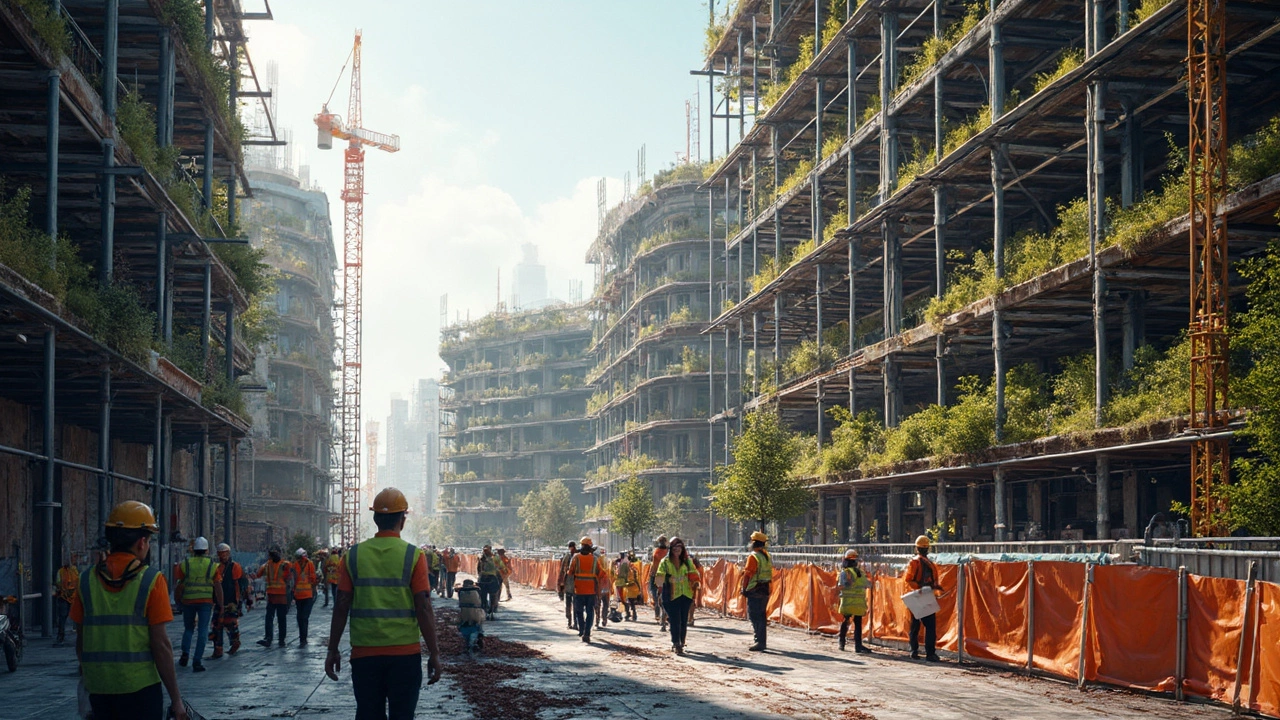Commercial Projects: Practical Tips and Real‑World Insights
Thinking about a new commercial build or a big upgrade? You’re not alone. Whether it’s a warehouse, a school, or a retail space, commercial projects have their own set of rules, budgets, and timelines. Below you’ll find straight‑forward advice that cuts through the jargon and helps you move from idea to finished building.
Plan Smart, Save Money
The first step in any commercial project is a solid plan. Start by writing down what the building needs to do – how many people will use it, what kind of equipment will be inside, and any special safety rules. Once you have a clear list, talk to a local architect or a design‑build firm. They can turn those needs into a simple layout and give you a ballpark cost.
Don’t forget to factor in hidden costs. Things like site grading, utility connections, and permits can add up fast. A good rule of thumb is to add 10‑15 % to your budget for these extras. It’s better to have a cushion than to watch the project stall because you ran out of cash.
Choose the Right Materials for the Job
Commercial buildings often need tougher materials than a typical home. Concrete, steel, and engineered wood are popular because they handle heavy loads and last longer. For a warehouse, a steel frame with metal cladding keeps costs down while delivering strength.
If you’re building something like a school, fire safety becomes a top priority. Materials that meet local fire codes – such as fire‑rated gypsum board or concrete block walls – are a must. The same goes for roof systems; a durable, low‑maintenance metal roof can save you money on repairs for years.
When you’re on a tight budget, look for cost‑effective alternatives that still meet performance standards. For example, using insulated metal panels can provide both thermal efficiency and a sleek look without the high price of a full‑size curtain wall system.
Another tip: talk to suppliers about bulk discounts. Ordering steel beams or roofing panels for the whole project at once often lands you a better price than buying them in small batches.
Stay on Schedule with Clear Communication
Time is money on a commercial site. Make sure every contractor knows the critical milestones – when the foundation needs to be poured, when the structural frame goes up, and when interior finishes start. A simple weekly check‑in email can keep everyone aligned.
Use a shared project calendar or a basic project‑management app. Even a free spreadsheet can track who’s doing what and when. If a delay pops up, you’ll spot it early and can rearrange work to keep the overall timeline on track.
Don’t forget the inspections. Scheduling them in advance prevents surprise hold‑ups. Most councils require a foundation inspection before you can pour concrete, and a final building inspection before you hand over the keys.
Finally, keep an eye on quality. Cutting corners on a commercial project often leads to expensive fixes later. Spot‑check welding on steel frames, verify that concrete mixes meet the specified strength, and make sure waterproofing membranes are fully sealed before the roof goes on.
By planning carefully, choosing the right materials, and keeping communication clear, you’ll give your commercial project the best chance of finishing on time and on budget. Ready to get started? Pick one of the many real‑world case studies below for more detailed guidance on specific types of builds, from schools to warehouses and beyond.

What Type of Construction Suits Your Commercial Structure?
Apr 4, 2025, Posted by Damon Blackwood
Choosing the right type of construction for a commercial building isn't just about aesthetics—it's essential for functionality and cost-efficiency. From steel frameworks to eco-friendly options, each type has its pros and cons. We'll break down different construction types and provide tips to help you make the best decision for your project. Stay informed and make the smartest choice for your commercial building needs.
MORESEARCH HERE
Categories
TAGS
- foundation repair
- commercial construction
- construction
- new builds
- home improvement
- home renovation
- bathroom renovation
- construction materials
- residential construction
- building codes
- home foundation
- building types
- renovation tips
- building materials
- construction differences
- contractor
- foundation cracks
- home construction
- architectural services
- foundation issues